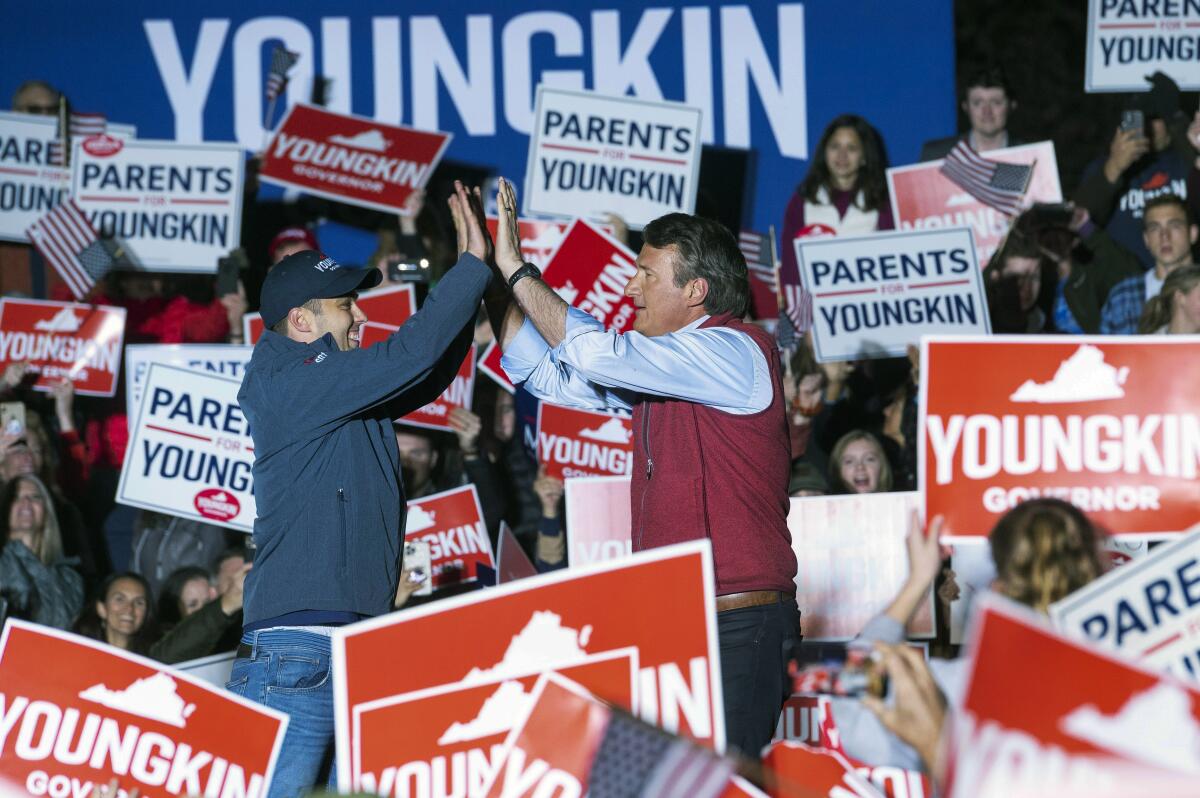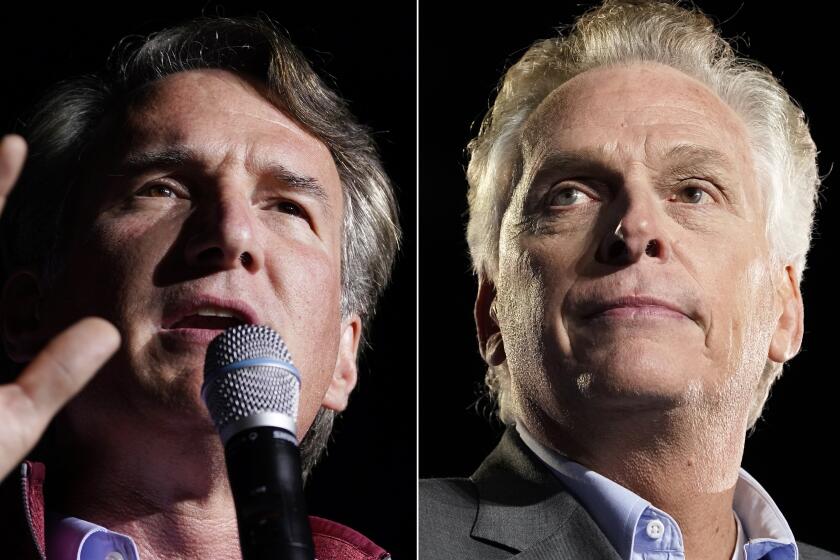Republican victory in Virginia shows a post-Trump path

- Share via
WASHINGTON — Terry McAuliffe had a straightforward strategy in his effort to become the first person since 1974 to win a second term as governor of Virginia: Link the Republican, Glenn Youngkin, tightly to Donald Trump.
It didn’t work.
Welcome to a special edition of our Essential Politics newsletter, examining Tuesday’s closely followed election in Virginia.
It was a bad night for Democrats in Virginia, a onetime swing state that has been increasingly blue. This year, the state shifted heavily back to the GOP.
The failure of the Democratic strategy didn’t occur because Virginians suddenly grew fond of the former president, who lost the state to Joe Biden by 10 points just a year ago. Preliminary exit polls showed only about 40% of Virginia voters had a favorable view of Trump — about the same share he won in the election.
Nor can Democrats blame the turnout: Unlike elections in 2010 and 2014, when low turnout of Democratic voters sank the party’s candidates, Virginia voters showed up in big numbers this time. Final turnout seems on track to be well over 3 million votes, perhaps around 3.3 million, up from 2.6 million in the election for governor four years ago.
Instead, Youngkin managed to do something few other Republicans have accomplished recently: He kept conservative voters mobilized while separating himself enough from the former president to appeal to swing voters.
The Virginia governor’s race will offer a glimpse into the likely political dynamics of the 2022 midterms.
Those same exit polls that showed Virginians disapproving of Trump? They showed Youngkin winning almost 1 in 5 votes from the disapprovers.
Youngkin was clearly helped by Biden’s slumping approval: Many voters wanted to send a message of discontent.
But the Republican candidate did more than just surf on an anti-Biden wave. The reason for his success can be seen in his handling of education issues, one of the main focuses of his campaign.
Online, and in appeals to conservative voters, Youngkin, a wealthy businessman in his first political race, leaned into Republican culture war issues. One of his online ads featured a woman who campaigned against her local schools’ assignment years earlier of Toni Morrison’s Pulitzer Prize-winning novel “Beloved” for her son’s high school Advanced Placement English class.
But on television, in messages aimed at the vast suburban stretches of Northern Virginia, where Democrats have gained their winning margins in recent elections, Youngkin didn’t mention those issues. Instead, he promised to listen to parental complaints while pledging to increase teachers’ pay and “pass the largest education budget in history.”
Tuesday night, the payoff from that strategy was clear: In rural, blue-collar counties, Youngkin outpaced previous Republican candidates, including Trump. At the same time, he ate into the Democratic margins in some key suburban counties outside of Washington, D.C., and Richmond.
If Republicans can replicate that combination elsewhere, they’ll have a clear path to success in next year’s midterm elections, and perhaps beyond.
Get our L.A. Times Politics newsletter
The latest news, analysis and insights from our politics team.
You may occasionally receive promotional content from the Los Angeles Times.
Get the L.A. Times Politics newsletter
Deeply reported insights into legislation, politics and policy from Sacramento, Washington and beyond. In your inbox twice per week.
You may occasionally receive promotional content from the Los Angeles Times.





